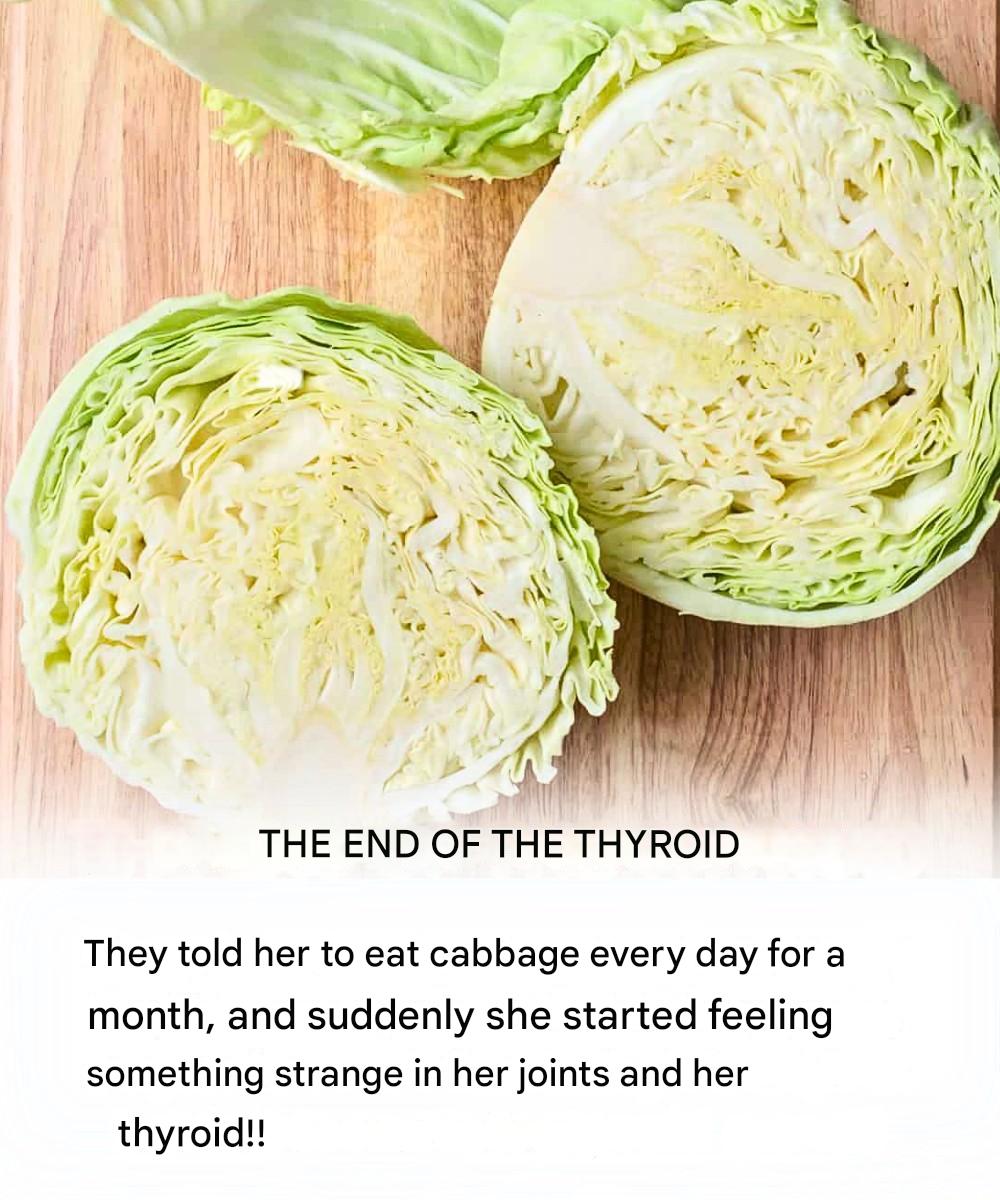Glucosinolates and Thyroid Problems
Like other cruciferous vegetables, cabbage contains glucosinolates—natural compounds that can interfere with the body’s absorption of iodine, a mineral important for the production of thyroid hormones.
A diet high in cruciferous vegetables and low in iodine may increase the risk of hypothyroidism, especially in people who are already prone to thyroid problems.
For most people, however, the amount of cabbage that causes harm is far greater than what is normally consumed—especially if the diet contains sufficient iodine. Many people eat cabbage, broccoli, and cauliflower regularly without experiencing thyroid problems.
Pay attention to your body.
If you add cabbage to your meals more frequently and notice changes such as joint pain or possible thyroid symptoms, you should consult a doctor or nutritionist. They can help you determine if your diet is related to your symptoms and recommend adjustments. Every body reacts differently to certain foods.
How to enjoy cabbage safely
• Add variety to your diet: Eat a wide variety of fruits and vegetables instead of relying exclusively on one type.
• Cook if necessary: Cooking cabbage lowers glucosinolate levels, making it a safer option for those concerned about their thyroid health.
Simple cabbage and carrot salad
Ingredients:
• 1/2 kale, finely chopped
• 2 carrots, grated
• 1/4 red onion, sliced
• Juice of 1 lemon
• Olive oil to taste
• Salt and pepper to taste
Instructions:
Mix cabbage, carrots and red onions in a large bowl.
In a separate bowl, whisk together lemon juice, olive oil, salt and pepper.
Pour the dressing over the vegetables and mix well.
Chill for 15 minutes before serving to allow the flavors to blend.
Final Thoughts:
Cabbage is a nutrient-dense vegetable with many health benefits, but it’s worth understanding its potential impact on thyroid function. Moderation, a varied diet, and listening to your body’s signals are crucial. For major dietary changes, consulting a doctor is always the safest course.
